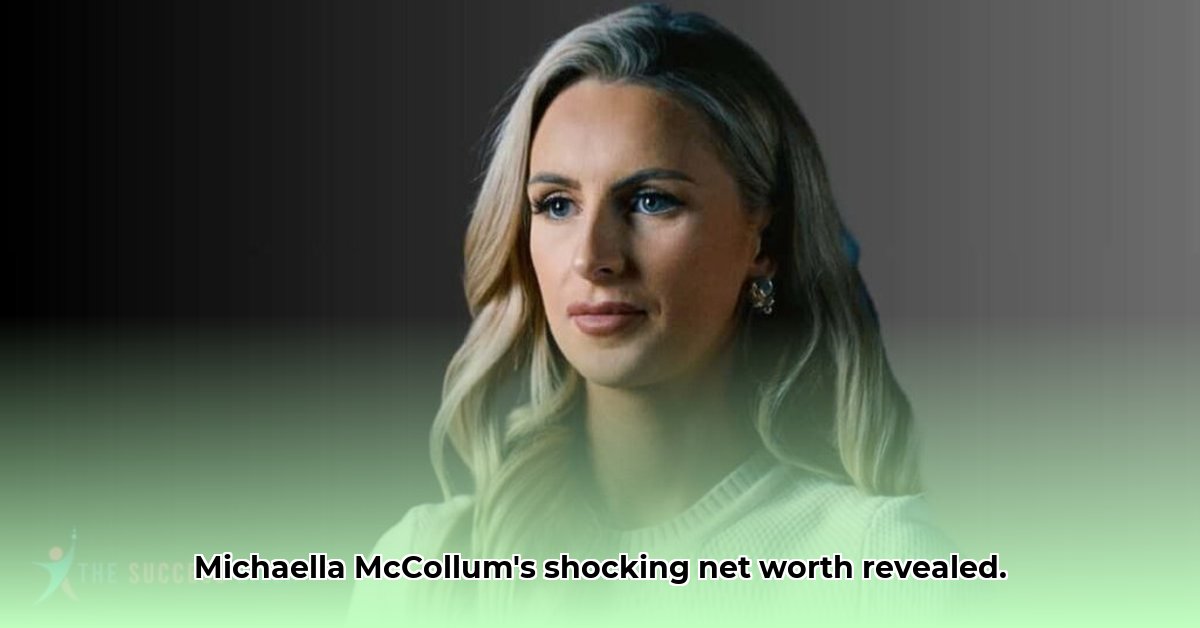
Determining Michaella McCollum's net worth presents a significant challenge. While the "Peru Two" drug smuggling case catapulted her into the international spotlight, quantifying her actual financial assets remains elusive due to a lack of public information and conflicting narratives. This article explores the complexities surrounding her story, examining potential income streams while acknowledging the inherent limitations in definitively establishing her net worth.
The Peruvian Cocaine Case and Its Lasting Impact
In 2013, McCollum's life dramatically changed with her arrest in Peru for cocaine smuggling. Initial media reports portrayed her as a reckless participant in a serious crime. However, her subsequent memoir and public appearances presented a different narrative, suggesting coercion or a misguided youthful error. This duality makes objective assessment, let alone financial evaluation, extremely difficult. The initial media frenzy arguably shaped public perception, but subsequent narratives attempted to counter initial judgments. How significantly did these conflicting portrayals impact potential earnings?
Income Streams: A Look at Potential Earnings
McCollum's autobiography, which details her experiences, undoubtedly contributed to her income. Potential speaking engagements and media interviews likely added to her earnings. However, precise figures remain unavailable. Privacy concerns and the lack of transparent financial records hinder any definitive assessment. It's crucial to remember that any attempts to calculate her net worth are speculative at best. What other, less obvious, income streams might exist? Could any of her post-incarceration work involve substantial or ongoing income?
The Media's Powerful Influence: Shaping Public Perception and Financial Prospects
The media's portrayal of McCollum significantly influenced public opinion and, consequently, her financial potential. Early sensationalized reports likely tarnished her reputation, yet later, more nuanced accounts may have shifted public sympathy. This complex interplay between media representation and financial success highlights the critical role of public perception in determining marketability. How did the shifts in media coverage affect her brand potential? Could a more positive media profile have translated into significantly more lucrative opportunities?
Beyond the Numbers: A Deeper Look at Michaella's Journey
Focusing solely on net worth ignores the broader significance of McCollum's story. Her journey encompasses a youthful indiscretion, incarceration, rehabilitation, and a deliberate shaping of her public image. This narrative raises questions about the media's role in shaping public perception, the criminal justice system's efficacy, and the ethics of media reporting. It's a compelling human story extending far beyond a simple financial calculation. How does her story resonate with societal debates on justice, rehabilitation, and the power of narrative control?
The Difficulties of Assessing Net Worth: Why It's So Hard
The lack of transparent financial information makes estimating McCollum's net worth extremely challenging. Many public figures maintain privacy regarding their finances; this is, unfortunately, common. Any attempt at quantifying her wealth must acknowledge the considerable uncertainties and speculative nature of such an endeavor. What factors should further research into similar cases consider when attempting to assess the financial impact of media portrayals?
Conclusion: A Human Story That Transcends Dollars and Cents
Precisely calculating Michaella McCollum's net worth is practically impossible due to the limited public information and the inherent ambiguities of her case. The more compelling aspect lies in the interwoven complexities of media portrayals, personal transformation, and the lasting consequences of past events. This compelling story emphasizes the limitations of reducing a human experience to mere financial terms. What lessons can be learned from McCollum’s experience, particularly regarding the balance between media reporting and individual privacy? How can future reporting on similar cases be improved to reflect a more holistic understanding of nuanced situations?